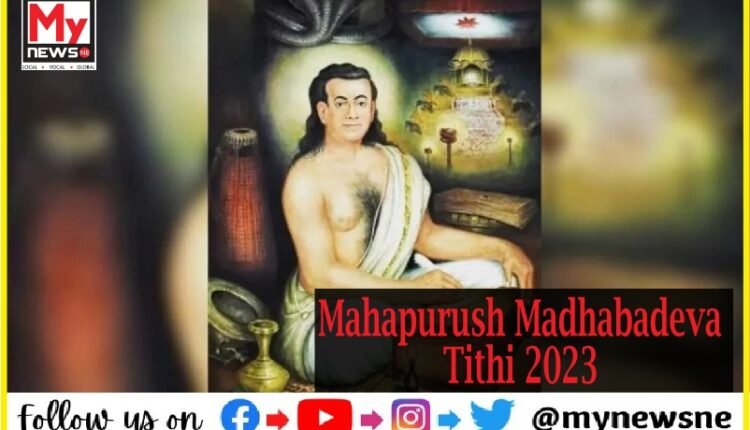Today is the 535th Advent Tithi of Mahapurush Madhavadeva
Guwahati, 5 June: Today is the 535th Advent Tithi of Sri Sri Madhavadeva, a Mahapurush and a follower of Srimanta Shankar Dev, the founder of the ek sharana name religion. Today is observed as Sri Sri Madhavadeva’s tithi in satras and namghars all over the state.
Madhavadeva, a Shakta dharma worshipper who was born in 1489 AD, eventually changed his religion to Vaishnavism after speaking with Srimanta Sankardeva. The ‘Mani Kanchan Connection’ is the name given to this combination of the two great individuals.
At Dhekiakhoba Barnamghar, the celebration of the Mahapurush’s birth anniversary started from June 4. The Barnamghar premises as well as Barpeta, Sundaridiya and Ganakakusi are organising cultural competitions that feature borgeet, sattriya dance and khol music. Additionally, Barpeta Satra and Sundaridiya-Ganakakusi are hosting a two-day event to commemorate the birth anniversary of Sri Sri Madhavadeva.
Sri Sri Madhavadeva, who was born in 1889 made immeasurable contributions to Assamese spirituality and culture that will live on in the Assamese people’s collective memory. Similar to Srimanta Sankardeva, Madhavadeva had a broad range of knowledge which is evident in his insightful writings, including the renowned “poof badhaar po,” as Shankaradeva referred to it.
The inventions of Madhavadeva like those of Srimanta Sankardeva went beyond the bounds of devotion. The Mahapurush’s immortal work, “Namaghosa,” masterfully combines devotion and poetic expression. A thorough study on “Namghosa” by Dr. Satyendra Nath Sharma has been published in “A Comprehensive History of Assamese Literature.”
Following in the footsteps of Guru Shankardev, Madhavadeva’s literary legacy is mostly composed of narrative and theoretical literature as well as borgeet and other poetry works. He began influencing Assamese literature and theatre even before the advent of renowned playwright Shakespeare and his contributions are regarded as foundational.
Studies on Madhavadeva’s literary legacy are still being conducted but there hasn’t been much discussion on his contributions to contemporary Assamese writing notably in the area of drama.

